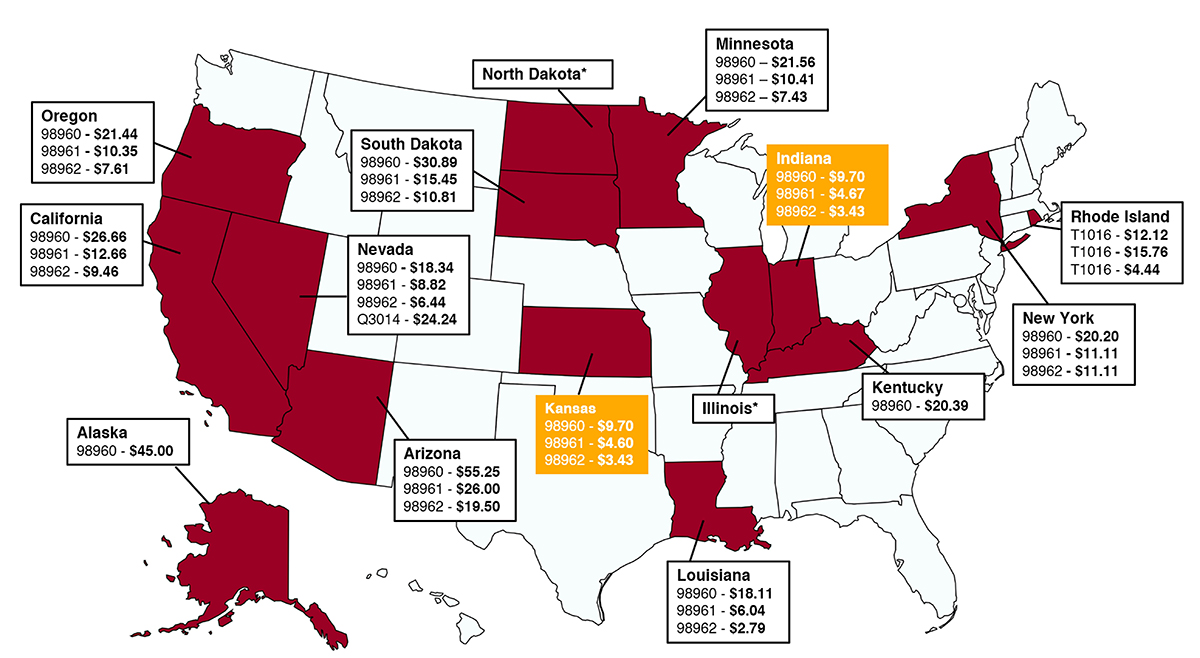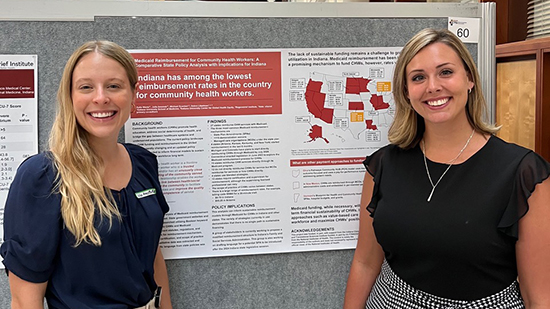First year IU School of Medicine students Julia Amstutz and Kylie Wertz participated in the Indiana University Medical Student Program for Research and Scholarship (IMPRS) this summer. With mentorship from Debra Litzelman, MD, director of education for the IU Center for Global Health Equity (IUCGHE), and Michael Scanlon, IUCGHE assistant director of research, the students worked on a health policy project funded by the Indiana Department of Health focused on reimbursement of community health workers in Indiana.
“Community health workers are critical members of health care teams and the overall health workforce,” said Dr. Litzelman. “They foster trust and serve as a linkage between communities and health and social care systems and deliver community-based health and social services and education.”
While research widely supports the positive impact community health workers play in health systems and on health outcomes for patients, the growth of community health workers in the U.S. is challenged by a lack of sustainable funding models.
As a first phase of the reimbursement project, IMPRS students Amstutz and Wertz led a landscaping review of state policies of reimbursement models with a focus on Medicaid reimbursement for community health worker services. This review revealed that Indiana has one of the lowest Medicaid reimbursement rates in the US, which hampers local efforts to strengthen community health services and workforces.
The results of their policy review were presented at the 2023 IMPRS Poster Symposium, where Amstutz and Wertz were selected as IMPRS poster and presentation finalists and received the Certificate of Excellence.
“Working on this project has already impacted how I think as a future physician. As I learned about community health workers, I also learned a lot about the social determinants of health and how those play a huge role in a patient's health outcomes,” said Wertz. “As a physician, I will not always have the best understanding of my patients' communities and the challenges they face. However, I can do my best to educate myself, learn about the resources that communities do have, and lean on public health workers such as CHWs to help provide more competent care to my patients.”
“This project has further opened my mind to how invigorating, meaningful, and creative the research process can be, and underscored how the best research utilizes the power of collaboration and builds upon the work that has already been done,” said Amstutz. “I hope to continue to pursue research like this, which contextualizes medicine within its often complex and multifactorial community, because I want my role as a physician to be defined both by the individual care that I provide but also the communities that I serve, recognizing how intertwined they are.”
Figure 1. States reimburse CHWs through Medicaid State Plan Amendments are highlighted in red. The reimbursement rates for CHW services are provided in the boxes. The rates for Indiana and Kansas are in yellow to show that they have the lowest rates out of these states.
*The reimbursement rates for CHWs in these states were unavailable.




